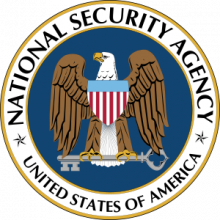Google sees a silver lining in NSA spying
Google has begun to encrypt all searches made by users even if they aren't signed in to Google but it reveals the searches to its advertising customers. The search giant appears to be taking advantage of the NSA spying scandal to increase the number of its advertisers.
Danny Sullivan reports:Post-PRISM, Google Confirms Quietly Moving To Make All Searches Secure, Except For Ad Clicks










































































